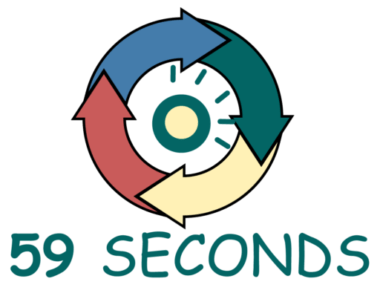Scrum Product Backlog Prioritisation
A 59 Seconds Agile Training Video
Continue to Part 4 Below
Prioritizing the Product Backlog
A 59 Seconds Agile Article
This article provides an ‘Introduction to Prioritizing the Product Backlog’ and looks to discuss what the Product Backlog is. It provides an overview of who is involved in the process of Prioritizing the Product Backlog.
Prioritizing the Product Backlog: Planning
The first thing to consider when planning where to place a feature in the product backlog is what amount of risk it will take to develop. This might stem from the complexity of the feature, or the uncertainty about how it’s going to function, or the amount of dependency the entire project has on this particular feature.
All of these types of risk can make teams reluctant to start the development for that feature. They might hope that it’ll seem less risky later on, or that it will somehow work itself out.
Instead, it’s more likely that your team will run out of time or money, which will cause development for that feature to be even riskier. Instead of procrastinating these risky features because they’re intimidating, why not meet them head on from the beginning?
In a prioritized product backlog, high-risk features are given a higher priority, so they’re dealt with when the team still has time and money to develop them successfully. However, the product backlog isn’t entirely front-loaded with high risk features that would stress out the development team unnecessarily. They’re mixed together with lower-risk features that have high priority for other reasons.
By developing the riskiest features early on, your team will have a better idea of the project timeline and will feel empowered to continue creating value. They’ve already tackled the hard part, so everything else may seem a little less daunting.
You might be wondering how to determine how risky a feature is? The main idea is to have a more objective way to determine how much risk a feature poses for your company, and then to prioritize the highest-risk features to be built first. Planning and prioritization are the keys to unlocking maximum value.
Continue Reading —> Next
Prioritizing the Product Backlog
A 59 Seconds Agile Video Animation
Continue Reading —> Next
User Stories Applied
A 59 Seconds Agile Book Review
User Stories Applied by Mike Cohn is one of our favourite books on Agile User Stories. The book starts with an overview into user stories, and details what a user story is and the different aspects of them. He then discusses how to go about writing a user story, and provides details of the INVEST criteria that can be used to determine if the story is meeting all of its objectives. Next Mike gives an in depth discussion of who user stories are written for and where to begin when gathering the details for them. The book then discusses acceptance testing user stories, including how to go about specifying these criteria and the responsibilities of the development team and customers during this process.
Continue Reading —> Next
Prioritizing the Product Backlog
A 59 Seconds Agile Infographic

Continue Reading —> Next
Agile Scrum Master Training Course
Our Favourite Agile Books
We found these books great for finding out more information on Agile Scrum:
Continue Reading —> Next


